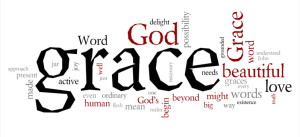 “Make every effort to live in peace with everyone….” (Hebrews 12:14, NIV)
“Make every effort to live in peace with everyone….” (Hebrews 12:14, NIV)
UN troops are often called “peacekeepers” but there is an irony in that name: they don’t keep peace at all. Rather, they go into troubled areas and stand in the middle of conflict between two factions so diplomats have time to negotiate for peace between the two sides. But since there’s no peace to begin with, there’s no peace to keep.
Mike Murphy writes this in his blog, “Rumblings“:
“Blessed are the peacemakers” someone famous once said. What if those who say they believe actually acted on those words of Jesus? Peacemaking is a dangerous, radical activity in these days of unfiltered bombast and underdeveloped impulse control. The peacemaker always pushes against the prevailing winds. Such is the way of the kingdom of God.
If we’re to be peacemakers, though, we need to figure out what a peacemaker does. Let me offer a few thoughts toward that end. First, let’s not define peace as just the absence of open conflict. The Evangelical Dictionary of World Missions calls that “negative peace,” but there is something more: “positive peace” is the absence of the causes of war. That’s the kind of peace we want.
But there’s a challenge in our striving for peace: it won’t always work. Paul put it this way in one of his letters in the Bible: “If it is possible, as far as it depends on you, live at peace with everyone” (Romans 12:18, NIV). Two important truths are in those words: first, it’s not possible to live at peace with everyone. We live in a broken world filled with broken people, some of whom just aren’t peaceable; others are even downright dangerous. Second, it doesn’t all depend on you. Try as you might, you’ll never be able to find peace with some people, let alone make it. Do your best, but ultimately we will all live with the tension between wanting peace but not experiencing it.
In an excellent book called, The Peacemaker, Ken Sande offers these hopeful words:
A peacemaker, then, aims to demonstrate God’s presence and power in the midst of conflict. Let me suggest four ways to do that:
First, a peacemaker keeps his or her focus on becoming like Christ, the Prince of Peace. We were created in God’s image, but that image was scarred and marred by sin. God’s plan from eternity past has been to restore that image in his creation (Romans 8:29); his work today in the lives of his followers is focused on making us like Christ (2 Corinthians 3:18); and one day that work will be done and we will be like Christ (1 John 3:2).
Second, a peacemaker seeks peace with God. That comes first through faith in the saving work of Jesus Christ, his death on the cross, and his resurrection. But since we all continue to sin (rebel against God’s good design), we need to keep short accounts with God through ongoing confession and repentance. Finally, we need to accept his forgiveness (1 John 1:9), which has been freely offered through Jesus’ sacrifice.
Third, a peacemaker seeks peace with him- or herself, which grows out of faith in God, trust in his guidance, and living as God desires.
Finally, a peacemaker seeks peace with others. Too often we try to have peace with others, yet are not at peace with God or ourselves; it is a futile and frustrating aim, and we end up being more like UN peacekeepers than true peacemakers.
“Peace with God, peace with each other, and peace with ourselves come in the same package.” (Tim Hansel; quoted in Sande)
Let me leave you with a couple questions to help answer:
Are you easy to be at peace with? Or are you disagreeable, argumentative, combative?
Do you need to give up your need to be right? If you have a strong need to be right, then finding peace with others will always be a struggle. Practice saying (and meaning!) these four words: I may be wrong. Use them even—perhaps especially—when you know you’re right! Which is more important, the person you’re with, or being right? Most of the time, the answer should be the person you’re with.
So, are you a peacemaker? Will you become one?
NOTE: This blog is the core of the message I offered at The Journey Church, Sonora, on Sunday, June 10, 2018.

 Racing, shameless, breathless, the old man never took his eyes off the ghost as he ran. It must be … but it couldn’t be. His son? A bewildering tangle of relief and horror, of joy and fear, muddled his mind. The face, though sunken and empty, unmistakably belonged to his son; yet the unfamiliar silk rags hung limply from an unrecognizable frame gaunt with starvation—not the chiseled proportions of a youth born to the hard work of a rancher.
Racing, shameless, breathless, the old man never took his eyes off the ghost as he ran. It must be … but it couldn’t be. His son? A bewildering tangle of relief and horror, of joy and fear, muddled his mind. The face, though sunken and empty, unmistakably belonged to his son; yet the unfamiliar silk rags hung limply from an unrecognizable frame gaunt with starvation—not the chiseled proportions of a youth born to the hard work of a rancher. A couple weeks ago
A couple weeks ago As I continue, slowly, to work my way through the prophetic book of Jeremiah, I’ve come to a section of prophecies against Israel’s neighbors: Egypt, Philistia, Moab, and many others. It doesn’t make for nice, cheery reading! Words like woe, disaster, and desolation pepper the text. Shame, slaughter, calamity. Clearly, Yahweh—the personal, jealous, almighty God of Israel—is not happy with these nations that have waged centuries of war against his chosen people.
As I continue, slowly, to work my way through the prophetic book of Jeremiah, I’ve come to a section of prophecies against Israel’s neighbors: Egypt, Philistia, Moab, and many others. It doesn’t make for nice, cheery reading! Words like woe, disaster, and desolation pepper the text. Shame, slaughter, calamity. Clearly, Yahweh—the personal, jealous, almighty God of Israel—is not happy with these nations that have waged centuries of war against his chosen people.